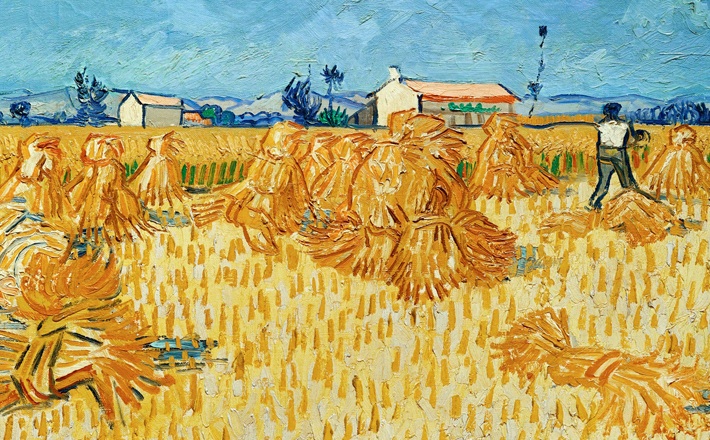Commentary on Isaiah 66:10-14
This oracle addresses Persian period Jews in the form of pure promise.
These promises are not abstract, disconnected doctrinal statements hurled into the ether. Rather, they are Seelsorge (“soul care”) for a city and its people, ravaged by war, pain, and terror. For the Bible, promise is linked to pain, and Isaiah 66 is no exception.
But in order to understand the pain into which these promises are spoken, one must understand how Jerusalem is described in earlier chapters of Third Isaiah (Isaiah 56-66).
Zion is in ruins. The holy city of God, the place of God’s own choosing, the concrete, geographical location of divine promise, has “become a wilderness … a desolation” (Isaiah 64:10). Promise died with the city, at least at first glance. The symbols of God’s favor and presence have been “burned by fire … our pleasant places have become ruins” (64:11). It was over these same structures that a psalmist once proclaimed, “God is in the midst of the city; it shall not be moved; God will help it when the morning dawns” (Psalm 46:5).
But morning’s light never broke, and night persisted. Zion’s “post-apocalyptic” landscape is not only the fallout of Mesopotamian imperialism; God is somehow caught up in it all. Modern sensibilities lead one to try and untangle God from involvement with such death and destruction. But for the biblical texts at least, the God of Israel is caught up in both death and life, judgment and salvation (Deuteronomy 32:39; 1 Samuel 2:6; Psalm 90:1-12). These texts insist that, God’s wrath somehow lurks behind the mask of imperialism: “But you were angry, and we sinned; because you hid yourself we transgressed … for you have hidden your face from us, and have delivered us into the hand of our iniquity.” (Isaiah 64:5). Zion labors under the oppressive weight of divine absence and silence (Isaiah 63:19).
The text begins with a command to “rejoice” in the new reality God is creating: “Rejoice with Jerusalem, and be glad for her.” (Isaiah 66:10). The joy to which the people are called is the joy of fulfillment, the joy Simeon had upon realizing that his long wait had finally come to an end (Luke 2:28-32). Jerusalem, the text promises, will no longer be a source of mourning and sorrow, but rather will bring maternal satisfaction, consolation, and delight (Isaiah 66:11). And why? Because God will:
- “Extend prosperity to her like a river, and the wealth of the nations like an overflowing stream” (Isaiah 66:12)
- “you shall nurse and be carried on her arm, and dandled on her knees.” (Isaiah 66:12)
- “As a mother comforts her child, so I will comfort you; you shall be comforted in Jerusalem.”
These lavish promises knit together imperial and maternal imagery. The God of Israel is king of the world, and the center of God’s royal power is Zion/Jerusalem. Like planets to a sun, the “wealth of nations” gravitates to Zion because she is the center of God’s reign. The offering of tribute, in this case, is a sign of obedience to God’s reign.
But God has promised not only to make Zion an imperial capital, God has also promised to make her a comforting mother:
and you shall nurse and be carried on her arm,
and dandled on her knees.
As a mother comforts her child, so I will comfort you;
you shall be comforted in [or, ‘by means of’ or ‘through’] Jerusalem” (Isaiah 66:12-13)
These carefully crafted poetic lines make it clear that it is impossible to separate God’s comforting work from the agency of Jerusalem: “I [God] will comfort you; you shall be comforted by means of Jerusalem.” God comforts as a mother might, holding a child, not only with an eye toward solace and safety, but also with a sense of deep and abiding joy (“and dandled on her knees.”). God is bound to God’s people through promise, but that sense of commitment is also energized by God’s parental delight in Jerusalem. In this text, play and comfort are linked.
God’s promises in Isaiah 66:10-14 bring the old world of ruin to an end, and in its wake, create a new world, one in which Jerusalem is a joy (cf. 65:17). In this new world, Zion is no longer a place of scarcity and collapse; its life and destiny are marked by gladness, love, joy, and consolation.


July 3, 2016